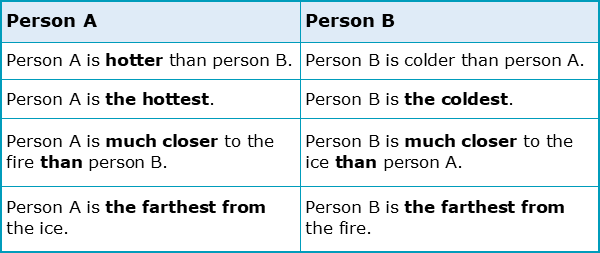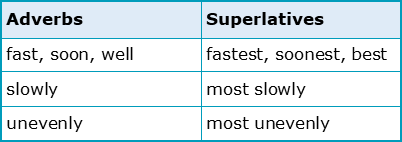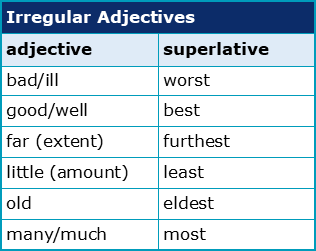What are the rules of English superlatives?

This is the fourth of five chapters about Comparatives and Superlatives. To complete this reader, read each chapter carefully and then unlock and complete our materials to check your understanding.
– Discuss the concept of gradable and multi-syllable adjectives
– Provide advice on spelling issues when making superlatives
– Explore the four functions of superlative constructions
Chapter 4
Similar to how Chapter 2 explored comparative constructions in detail, this fourth chapter on comparatives and superlatives focusses on the variation in English superlatives. By now, you should hopefully recognise that English superlative constructions such as ‘China is the most populous country in the world’ are formed either through addition of the suffix ‘-est’ to an adjective or adverb or through the inclusion of the words ‘most/least’. Because there’s a lot of variation in this topic, this fourth chapter now focusses on the rules for adjective and adverb selection and provides guidance on how to make grammatical superlative constructions.
Are all adjectives and adverbs gradable?
For an adjective or adverb to be gradable and therefore grammatical when used in a superlative construction, that word must represent a non-absolute concept. In other words, adjectives such as ‘hot’ or ‘cold’ are gradable in the sense that something may be more or less hot and cold, as is shown in the following diagram:

The following comparative and superlative statements are therefore grammatical in using the adjectives ‘hot’ and ‘cold’ precisely because these words are gradable:

Some adjectives and adverbs however are absolute and are therefore ungradable, such as the words ‘dead’ or ‘married’. These words are absolute in the sense that something either is or is not dead or married, and as such they cannot be used to create superlatives. It would be incorrect to say ‘James is deadest’ or ‘Sam is the most married’. Likewise, for adjectives and adverbs that already contain the idea of ‘very’ in their definition such as ‘amazing’ or ‘terrifying’, it would be ungrammatical to use these in superlative constructions.
How are adjectives and adverbs formed for superlatives?
For the adjectives that are gradable, the next important question is regarding how to correctly form them for superlatives. We’ve already discussed how some adjectives and adverbs take morphological inflection in the form of an ‘-est’ suffix, and how others require a syntactic change with the addition of the words ‘most’ and ‘least’. The question then is which adjectives and adverbs take suffixes and which take additional words? Thankfully, there are some straightforward rules to describe the patterns here that work for the vast majority of cases.
1. Adverbs
While adjectives may have a more even mix of forms that take ‘-est’ and forms that require ‘most’ or ‘least’, most adverbs are not inflected for superlative constructions. Examples such as ‘best’, ‘fastest’ and ‘soonest’, however, are some of the handful of adverbs that can be inflected with ‘-est’. Generally then, speakers should use ‘most’ to create superlative constructions that use adverbs.

2.1 Adjectives with One Syllable
For one-syllable adjectives such as ‘smart’ and ‘tall’, the general rule is to simply add an ‘-est’ suffix to create the superlative form, as in ‘smartest’ and ‘tallest’.
2.2 Adjectives with Two Syllables
For adjectives that have two syllables, the most common (and safest) rule by far is to use ‘most’ or ‘least’ before the adjective, as in the expression ‘most/least careful’. However, two-syllable adjectives that end in ‘y’ tend to take the suffix ‘-est’ instead, such as ‘happy > happiest’ and ‘busy > busiest’. To confuse the matter further, there are a handful of two-syllable adjectives that are grammatical with either construction, such as the words ‘common’, ‘gentle’, ‘narrow’ and ‘stupid’.
2.3 Adjectives with Three+ Syllables
For adjectives of three syllables or more such as ‘important’ or ‘expensive’, the rule here is to always use ‘most/least’ and to never use the suffix ‘-est’. Remember these rules and you should rarely go wrong:

Are there any spelling differences?
As you may have noticed in the previous table, although these adjectives are considered to be regular in most senses, there are still some spelling differences that students should pay attention to if they wish to be accurate in their writing. Three rules in particular are worth remembering:
i) For adjectives containing CVC (consonant-vowel-consonant) constructions such as ‘fat’, the final consonant should usually be doubled: fatt
ii) For adjectives ending in ‘e’ such as ‘nice’, simply add ‘-st’ and not ‘-est’: nicest.
iii) For adjectives ending in ‘y’ such as ‘happy’, change the ‘y’ to an ‘i’ before adding the ‘-est’ suffix: happiest.
Which adjectives are irregular?
As if the above rules weren’t enough for students to deal with, there are also irregular adjectives that refuse to follow any discernible pattern. Adjectives such as those in the table below must therefore be learnt on a word-by-word basis, although thankfully there aren’t many of them:

Which superlative functions are possible?
The final section of this chapters introduces a number of possible uses and structures for superlative constructions.
a) to describe the upper or lower limit of a quality
“She looks the happiest I’ve ever seen her.”
b) to make comparisons
“His knees ache often, but his back hurts the most.”
c) to compare more than two things
“Which shopping centre is the best in this city?”
d) to describe one thing in a group of three or more
“India, China and Brazil are interesting countries, but Brazil is the most fascinating.”
To reference this reader:
Academic Marker (2022) Comparatives and Superlatives. Available at: https://academicmarker.com/grammar-practice/affixes/comparatives-and-superlatives/ (Accessed: Date Month Year).
Downloadables
Once you’ve completed all five chapters about comparatives and superlatives, you might also wish to download our beginner, intermediate and advanced worksheets to test your progress or print for your students. These professional PDF worksheets can be easily accessed for only a few Academic Marks.
Collect Academic Marks
-
100 Marks for joining
-
25 Marks for daily e-learning
-
100-200 for feedback/testimonials
-
100-500 for referring your colleages/friends